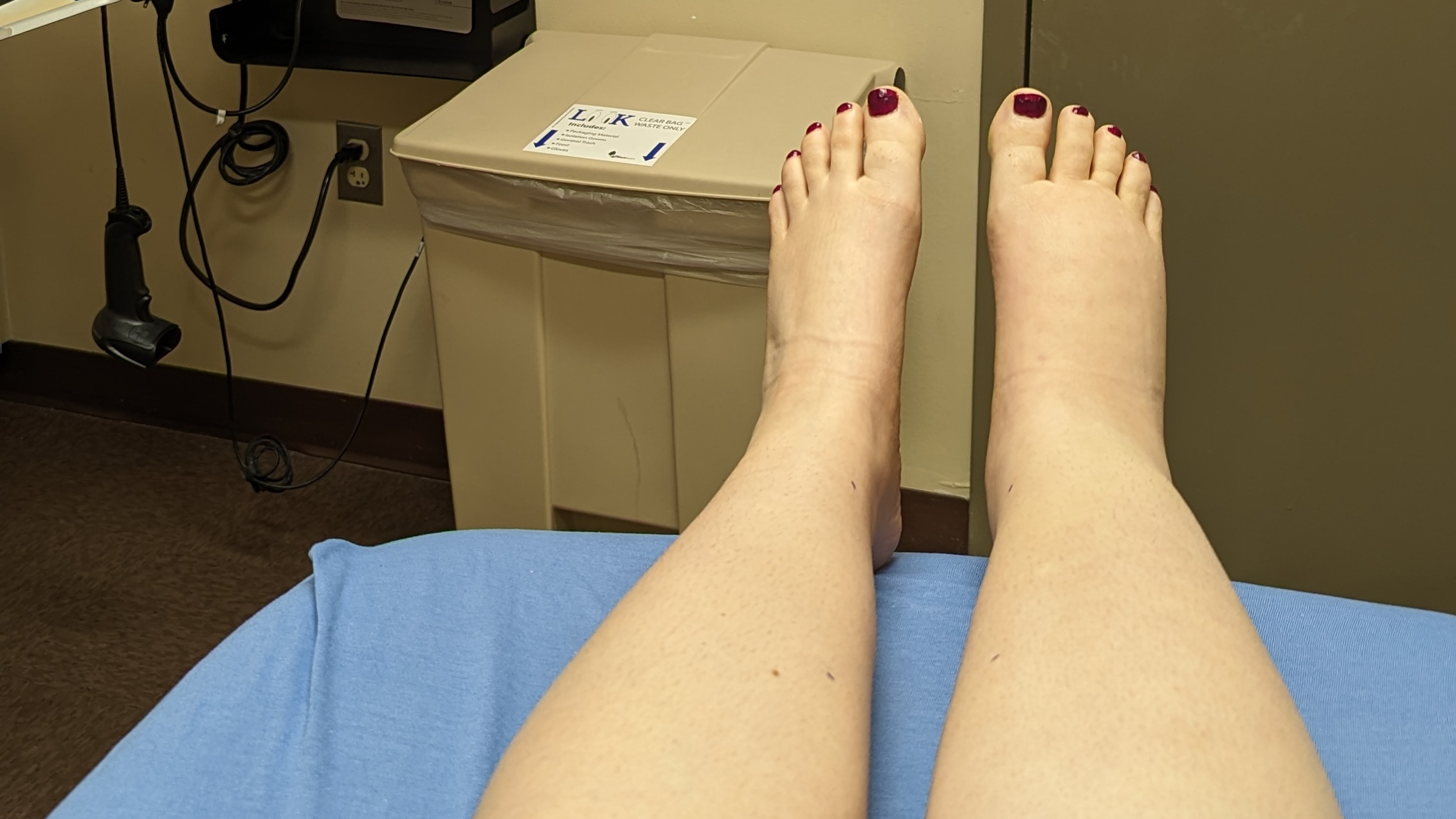Pets are wonderful companions, especially when you’re dealing with a chronic condition. Cuddly and affectionate, they are instant mood lifters when things seem to get tough. Even just petting your animal can lower your blood pressure! Except for a little light maintenance, there isn’t much of a downside to having a pet. However, there are a few things you should keep in mind when it comes to your pets and lymphedema.
Tooth and Nail
As anyone with a cat or bird knows, bites and scratches are practically unavoidable. My kitten is feisty and a bit aggressive when she plays, so I’m constantly covered in her special little calling cards.
When you get scratched or bitten by your pet, it’s important to take action right away, because an infection could occur regardless of whether or not it’s on your affected limb. Clean the break in the skin, and see a doctor if it’s a serious bite. Make sure you’re up to date on your immunizations, as well, to reduce the risk of infection!
Bites and scratches happen – it’s part of having a pet! – but they are avoidable. Try to discourage your pet from rough play by introducing a toy as soon as they begin using their teeth or claws during playtime. Eventually they’ll get the idea that your hands and feet are not toys!

Litter boxes
I’m sure you’ve heard the warnings against pregnant women cleaning litter boxes. This is for good reason, because they are at risk for contracting toxoplasmosis, a condition which could cause birth defects.
Toxoplasmosis doesn’t cause any symptoms in healthy people, but for those with a compromised immune system, it can cause a lot of problems. Lymphies, that means us! If you have lymphedema in your hand or arm, it’s best to wear gloves when cleaning the litter box, or to have someone else do the task altogether.
For more information on toxoplasmosis, click here.
Fish
Fish are great. They’re so peaceful to watch, swimming around in their little bowls. But – surprise! – they are susceptible to a bacteria that can infect fish owners, especially those with lymphedema.
This bacteria is Mycobacterium marinum, also known as “fish tank granuloma.” It creates bump-like lesions or open sores on your extremities. It forms in a line along the lymphatic vessel, and if it’s left untreated, it can invade the deeper tissues of the affected limb. Not good, guys!
You can contract this lovely infection from handling fish, cleaning the tank or bowl, or swimming in water that is not properly chlorinated. This is a bigger risk for those with lymphedema in their hand or arm, so to avoid contracting the bacteria, it’s important to wear waterproof gloves when cleaning your aquarium. Having someone else do the cleaning and therefore avoiding any contact with the water is even better.
So, to review:
- Avoid bites and scratches
- Treat any breaks in the skin as soon as they occur
- If you have lymphedema in the arm or hand, wear protective gloves when cleaning litter boxes or fish tanks
Pets rule, but as with anything there are some hidden risks. Following these tips can help to ensure a happy and healthy relationship with your pet, as well as good health for you!





Leave a Reply to Kelley ArmstrongCancel reply